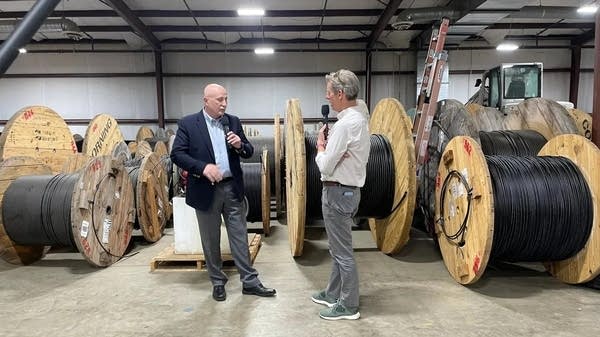Can AI really predict the weather?
Tech companies say artificial intelligence can predict the weather faster than traditional forecasting.

Microsoft has unveiled a weather forecasting model that makes its predictions using artificial intelligence. It’s just the latest tech firm to use AI for forecasting. Google, Nvidia and Huawei have all done the same.
This marks something of a revolution in weather prediction. For years, weather forecasting has been based on physics. That means millions of calculations about how heat and moisture move through the atmosphere.
But these new AI models, “Most of them don’t have any physics in them at all,” said Amy McGovern, a professor of meteorology at the University of Oklahoma. She said that, while the AI forecasts don’t know much about how weather works, they’re great at recognizing patterns.
“They’re trained on 40 or 50 years of data. And so they are learning, given some amount of history, what’s gonna happen next,” McGovern said.
And she said they’re pretty good at that, often on par with or better than traditional forecasts. And since they’re not doing all those physics calculations, “It’s really really fast to run them,” she said.
McGovern said that could give people more lead time before a storm.
“If you could get your hailstorm warning up from 15 minutes to an hour, you would have more time to prepare,” she said.
For instance, you could move your car into a garage.
“But you know, some of us have to clean our garage out before we do that, and we need more than 15 minutes,” McGovern said.
But the AI models still have room for improvement. Some are not great at predicting small-scale, local events, like tornados, said Renato Molina, an environmental economist at the University of Miami.
“They’re still pretty far, particularly when it comes to predicting wind speeds,” Molina said.
And that also applies to hurricane forecasting, where predicting wind speed matters.
”Because that’s one of the key drivers of damage,” he said.
Still, the companies behind these new AI models are betting they’ll come to reliably outperform traditional forecasts. And that’s something plenty of customers would be willing to pay for. Customers like insurance companies, said Tatyana Deryugina, a finance professor at the University of Illinois.
“Because seemingly small differences in the model can make big differences for insurers’ bottom line,” said Deryugina. “And if you're not modeling the risk granularly enough, you could be on the line to lose a lot of money.”
Ultimately, though, Deryugina said the success of this forecasting will depend in part on whether people trust AI to do the job.
“If people are gonna decide whether they evacuate or not, how much they trust the forecast is gonna matter,” she said.
Deryugina said a forecast that no one acts on, is not a very useful one.













